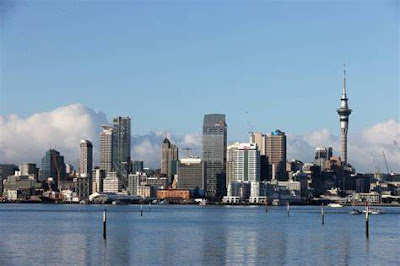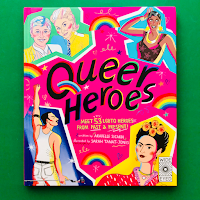I live in West Auckland.
I've called Sunnyvale home for more than ten years now, but I've lived in various suburbs in West Auckland on and off for decades.
My first ever flat was in Massey. Fresh out of High School, myself and two friends. We lived next door to a tinny house. The good thing about living next to a tinny house is that you know your house probably won't get broken into in case you're friends with the neighbours. The bad thing about living next to a tinny house is that we'd get door knocked at weird hours when we were mistook for the tinny house.
One time I heard someone getting beat up next door. It sounded pretty bad so I called our local police. Their response was 'Oh, are they c***nuts*? They're always doing that.' That was the entirety of their response. They hung up. Nobody came. I was 18 years old, home alone and scared that someone may have been badly hurt next door, but also too scared to investigate for myself.
Learning that the powers who are supposed to help are only interested in helping certain people really scared me.
A lot has changed in the last 20 years.
One thing that has changed rather dramatically is the level of violence in our community. In the last two years my workplace has had arson, security attacked with an axe and less than two weeks ago, a stabbing. Less than a year ago six people were injured in an attack in a supermarket in New Lynn. The attacker was shot dead at the scene.
And just last Tuesday, a woman was shot dead in a residency walking distance from my home.
On the Friday, a father and daughter were shot dead in their home in Glendene - also close to home. This is scary. Now, every time I hear the Eagle helicopter overhead I wonder if someone I care about has been hurt. If I'm home, I herd the children inside and lock the doors. I check the news to stay updated on what's happening.
I hear the Eagle most days.
The two shootings near our home were not acts of gang violence. Both were family violence incidents. I know this because New Zealand is small. I know several people who have family members that were friends of those murdered in Glendene. The person who murdered them was the ex-partner of the daughter, and while at the time of the murder he may have been gang affiliated, the family affected were not gang affiliated. I can barely register how painful this must feel for the family left behind.
And any time I read about a woman being murdered by a man known to her I can't help but consider our domestic violence stats:
- 1 in 3 women in Aotearoa experience intimate partner violence in their lifetime
- Only 33% of domestic violence cases are estimated to be reported
- Most people killed by homicide in NZ are women
- NZ has the highest rate of domestic violence in the OECD
goog_1157254184I find it very hard to believe that this woman's death was gang related when it's far more likely it was her partner, or ex partner**.
This isn't to say that gangs are not a problem. I live on the same street as a gang HQ. And while the immediate impact of this on my life is minimal***, there are other impacts. The main one is the level of methamphetamine use in my local community.
Patrick Gower delved into it in his 2021 documentary. And research from 2020 shows just how accessible it has become. I see its impact in my workplace most days. Much of our store theft is perpetrated by meth addicts to fuel their habit. I know this because the behaviour of regular uses is pretty easy to spot and we see it often. It's at a point where I'm teaching younger staff members how to identify it so they can get support when needed. Meth users often behave in unpredictable ways and we can mitigate the likelihood of this by our actions. Our tuakana should be safe when they come to work
But meth, gangs and domestic violence are merely symptoms. If we only treat the symptoms and not the cause, nothing will get better. Sadly, the cause is not simple to diagnose. It is varied and complex.
It's a perfect storm right now.
And there is no simple fix.
What we need is an overhaul of the structures that have allowed us to get to this point. This isn't as easy as 'changing governments' - these problems have been ignored or band-aided by successive governments. At the beginning of her term, Jacinda Ardern promised there would be no CGT under her leadership. This was massively short sighted. And while yes, changes are being made to WINZ and Working For Families, this will not solve our housing crisis. Prior to this we've seen National led Governments pull funding from health services across the board whilst lowering tax rates and raising GST - which advantages the wealthy and makes things more difficult for those on lower incomes.
I felt those daily updates genuinely helped unite us
I am not saying they've done a bad job - I do not believe any government could be perfect under the current circumstances. But the lack in direction in terms of pandemic recovery certainly factors into increasing rates of violence.
Scared people do not make great decisions. Directionless people do not make great decisions. Hopeless people do not make great decisions. Even if the current economic conditions do not directly impact someone, this aspect of living in uncertain times likely will.
And poor, hungry, disconnected scared people cannot be expected to make good decisions.
If you do not have hope for the future - why would you care about what happens in your future? Let alone the future of others.
I've seen this violence blamed on multiple things by multiple people. In the media it's gangs. In reader commentary it's often blamed on video games like Fortnite, teens and parenting (or a lack thereof). Politicians blame other politicians. And while yes, the blame ultimately lies with the offenders, there are reasons why we are seeing an explosion in rates of violent offending.
I think what it really boils down to is hope.

We need something to hope for. Something to look forward to. We need to know that things will get better.
When people cannot take holidays because they've run out of leave to look after sick people in their family, or because they've been sick themselves, every day life is grueling. Equally being refused leave due to staffing shortages, and working under the constant pressure of those shortages is very hard. And when you are doing your absolute best and still can't afford to pay your rent, or power, or petrol, or food because of the rising costs that show no sign in stopping rising, it is difficult to dare to hope.
Until this certainty can be provided I expect things will only get worse. And the worse things get, the further away hope will feel. All we can do, other than supporting those who have the power to level the playing field, is hold onto that hope. And if we have the strength - share that hope with others.
And food and/or money if we have it. It is very hard for hungry people to be hopeful people.
Plus, hungry adults can be hangry adults - we need to do more than this.
** I have learned subsequently (because New Zealand is small) that as I suspected yep - this woman sadly also lost her life to family violence.
*** Besides loud motorcycle noise and general speeding around the area we live in.
**** Our lack of a Capital Gains Tax is the worst aspect of this, but there are plenty more which fuel the divide. We have one of the lower top tax bracket income taxes in the OECD. This is crazy to me because in terms of percentage of income, those in lower income brackets pay much more tax as a percentage of income because all (or most) of their income is outgoing - thus incurring GST. This combination not only makes NZ a perfect tax haven for overseas investors, but also makes it very difficult for those living in poverty to change their circumstances, while giving positive financial reward to those who already have money (through interest on savings, early payment reductions on bills, not having to use high cost finance options et al).
***** But honestly, just wear masks when out and about people. This should be 'the new normal' if we truly want to stay healthy and minimise the impact of Covid and flu on the wider community. Masks are not perfect, but when used correctly can be very effective.









